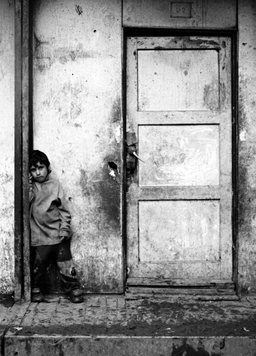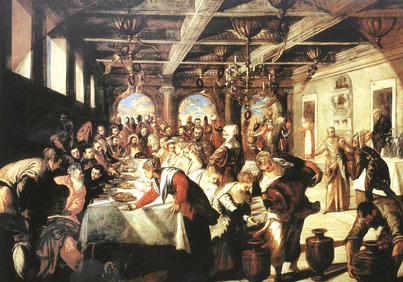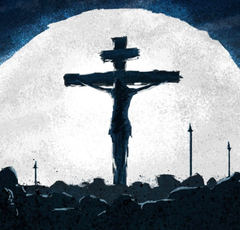 Where my head is at this morning: You will never figure out the center of God’s will for your life if you keep changing that center, never following through on what you have already once said is God’s will (seeing it through, whatever it is, no matter how hard it gets), and never recognizing that you keep saying “I know this is God’s will for me” and perhaps you shouldn’t keep saying that. What I do know is that following Jesus and being a family member of a local church is always God’s center of His will for you—always. What I do know is that Jesus hung and still hangs with the unclean, forgotten, marginalized, the poor, the under-resourced needy, and messy-unloved. This will always be the center of God’s will—always. As far as I can tell, the Bible takes the guess-work out of knowing where the center of God’s will is.
0 Comments
 I continue to find more and more, as I read my Bible and in my study and research, that the early gathered-church in houses throughout the Roman empire, “the meal” (better a banquet-supper composed of a meal and a symposium, where, after the meal, church teaching and discussion would take place) is the form that seemed to matter to God when he described the future of His people. Also, the Lord's Supper, well, was actually a supper, both originally with the twelve (i.e., you know, the “last” one) and as the church had been gathering in the New Testament and unto about 300 AD. Also we have the Marriage Supper of the Lamb (Revelation 19:6ff.) as a picture of the gathered-church from all ages at the end of time (as we know it). Listen to how God through Isaiah the prophet (25:6-9) envisioned the future of His gathered-people:
We can recall that God in Daniel envisioned a multitude from from “all the peoples, nations and men of every language” were to be gathered into the Son of Man's indestructible and eternal kingdom that they “might serve Him” (Dan 7:14). This, combined with the vision of the gathered-church throughout the ages, “from every nation, from all tribes and peoples and languages, standing before the throne and before the Lamb (Rev 7:9). The pictures of Daniel, Isaiah, and John in his Revelation, along with the formation of the church in Acts and as the church spread house to house throughout the Roman Empire and beyond for 300 years, this table of peoples gathered for a meal to worship, receive instruction, and to fellowship as God's family was indeed the gathered-church.
These pictures demonstrate that to be church (i.e., the gathered-church) was both local and missional in nature. We need to reimagine church.
For some reason, I decided to translate and soak in Galatians 2:20 this morning. I have given it a different spin (than most of the translations and how it is all too often preached); yet, the rendering is both grammatically justifiable and faithful to the biblical theology behind “in flesh” (ἐν σαρκί) and “in faith” (ἐν πίστει). Below, the first is, more or less, my word for word translation (with some help in brackets), which is far more fun to read out loud (to really hear Paul’s audible impression), which would have been the way the first hearers heard (they heard, not read) it. Below my wooden translation, I offer a more English interpretive translation for you.
My interpretive translation:
For why I have taken the last line in v. 20 as I do, check out what Paul already wrote in his introduction to Galatians: “. . . and the Lord Jesus Christ, who gave himself for our sins [cf. Gal 2:20c] to deliver us from the present evil age . . .” (1:3-4). Furthermore, the simple two words "But now" (δὲ νῦν) imply the inauguration of the new age (i.e., the kingdom of God) has come in the appearance of Jesus. Of course many times “now” simply means “now.” Paul, however, often uses "but now" to indicate the inauguration of the new age that has arrived in the coming, cross, and resurrection of Jesus Christ and not simply as a conjunction (cf. Gal 3:21; Rom 3:21; 6:22; 7:6; 8:1; Eph 2:13; Col 1:22; cf. Rom 3:26; 11:5, cf. “in the now time,” ἐν τῷ νῦν καιρῷ). Thus, Paul is helping the reader to hear that these words within the tension between this present evil age and the age to come inaugurated in Christ. To be crucified with Christ is to be delivered from this "present evil age" and, thus a participant in the new age, now. Seems to me this verse, Gal 2:20, calls us to live a life based on the new age hushered in by the Spirit (i.e., the new age of the kingdom) that was inaugurated in Christ’s faithful action of the cross (the reason Paul says, “I have been crucified with Christ,” 2:20a, which centers on the cross); rather than living by the passions and systems of the flesh that make up the way the world around us works (cf. the fruit of the flesh vs. the fruit of the Spirit later in Gal 5:16-24). This text reminds us, as Christians and as church, we are wholly different. Very much like Jesus’ words in John 17 that we are in the world, not of the world. This goes with the church-problem that Paul seems to be addressing, that is the nature of the gathered-church. Paul illustrates this by his previous rebuke of Peter (cf. Gal 2:11ff.), who, for whatever reason, had separated himself from Gentile believers at the table (probably a reference to the Lord's Supper of the gathered-church). Additionally, Gal 2:20 is not far from the implications of Paul's words in Ephesians 2:11-22: note the centrality of the cross (i.e., crucifixion as the means by which the wall (i.e., separation) is broken down between believing Jew and believing Gentile, making the two (literally, the both) one new humanity (in Christ), which is the household of God, being built up as a holy temple (i.e., the gathered-church). Therefore remember that at one time you Gentiles in the flesh, called “the uncircumcision” by what is called the circumcision, which is made in the flesh by hands— remember that you were at that time separated from Christ, alienated from the commonwealth of Israel and strangers to the covenants of promise, having no hope and without God in the world. But now in Christ Jesus you who once were far off have been brought near by the blood of Christ. For he himself is our peace, who has made us both one and has broken down in his flesh the dividing wall of hostility by abolishing the law of commandments expressed in ordinances, that he might create in himself one new man in place of the two, so making peace, and might reconcile us both to God in one body through the cross, thereby killing the hostility. And he came and preached peace to you who were far off and peace to those who were near. For through him we both have access in one Spirit to the Father. So then you are no longer strangers and aliens, but you are fellow citizens with the saints and members of the household of God, built on the foundation of the apostles and prophets, Christ Jesus himself being the cornerstone, in whom the whole structure, being joined together, grows into a holy temple in the Lord. In him you also are being built together into a dwelling place for God by the Spirit. To be crucified with Christ is to be caught up with the Spirit's working in forming the church. In particular, intentionally, a church, to fulfill the principle of being "crucified with Christ" ought to reflect the age of the Spirit wherein "There is neither Jew nor Greek, there is neither slave nor free, there is no male and female, for you are all one in Christ Jesus" (Gal 3:28; cf. Col 3:10-11, "new self" is actually "new man").
|
AuthorChip M. Anderson, advocate for biblical social action; pastor of an urban church plant in the Hill neighborhood of New Haven, CT; husband, father, author, former Greek & NT professor; and, 19 years involved with social action. Archives
February 2024
Categories
All
|
Pages |
More Pages |
|

 RSS Feed
RSS Feed